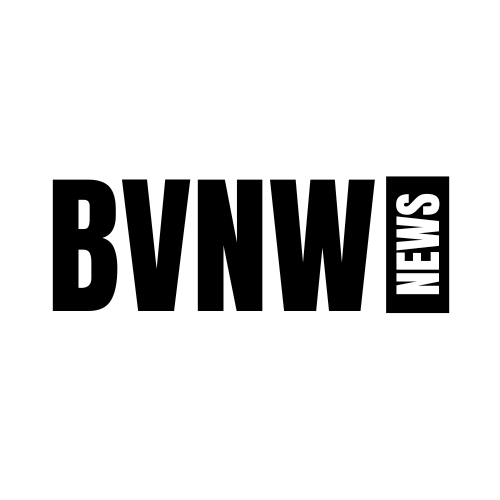Education legislation
Teachers and parents express concern over the introduction of several state bills concerning public schools.
Photo of the husky mascot statue, which sits at the BVNW main entrance.
February 22, 2022
A press conference was held Friday, Feb. 18 at St. Andrews Golf Club to discuss several bills introduced by the Kansas legislature that will impact healthcare and the state’s public education system.
At the conference, teachers, pharmacists, Roeland Park Mayor Mike Kelly, former Kansas State Representative Jan Kessinger and Senator Cindy Holscher spoke out against several newly introduced bills that were dubbed ‘anti-public school’ by Senator Holscher.
House Bill 2662 was widely discussed. It requests the establishment of a parental bill of rights, which would require schools to provide information on materials that are used in their classrooms. It would also remove the affirmative defense for schools for the crime of promoting materials that are harmful to minors, as well as prohibiting schools from non-renewing a teacher’s contract for refusing to teach against certain beliefs or practices.
Overland Trail Elementary teacher Katherine Nead said these requirements feel like tasks that would not be possible for teachers.
“I don’t know how we could keep kids interested if we’re not able to think of ideas on what is new and engaging for the kids each year,” Nead said. “That takes time to research, and it goes through the summer, and all school year-long. If we can’t do that, we’re going to lose student engagement. They’re not going to want to be there. The fun and joy that makes teaching great will collapse.”
Erin Gould, a mother of three boys in the Shawnee Mission School District, said she was concerned about House Bill 2662, as well as Senate Bill 393. This would require school districts to annually publish on the internet a list of learning materials and activities used for student instruction at each school of the school district and provide a penalty for violations thereof.
“These bills, in my opinion, are designed to undermine support in public schools by giving the impression, wrongly, that public schools are withholding information from parents. That isn’t true,” Gould said. “Parents have complete access to materials and teachers, in my opinion. The people who don’t are outside forces. It is those people who have an agenda to undermine public schools, that are looking to have access to that information to reinforce narratives that public schools are miseducating children, or are providing controversial information to students — both of which are untrue.”
Gould said bills like these try to show that public schools are not worthy of community support, which she said decreases the number of state expenditures in public schools. She said education is the last source of state money that can be dipped into, but this does not happen because it has a lot of private support.
“If you dig, and poke holes in people’s support in public education, it will make it that much easier in the future, to continue to cut funding,” Gould said.
The climate surrounding education is what Blue Valley High teacher Dianne O’Bryan said is pushing her and other educators toward different professions.
“I love teaching, I love my students, I love going to work every day, but I think the climate surrounding schools the last two years has been so negative, and so, in some instances, hateful,” O’Bryan said. “That’s the part that has made me stop and think about whether or not I want to keep doing this. It’s not the actual teaching, it’s not a district issue, it’s not a building issue. I feel supported by my school, and I feel supported by my district. I think at this point now, with the way people are speaking out against public schools, I feel like it is the distrust by some people in our community that is making me question [leaving teaching].”
The task of publishing all materials and resources used in class would be cumbersome, O’Bryan said, because the parents of all of her students can go in and access anything she teaches any day of the year. She said some people in the community wish to be able to go in and determine whether or not they agree with what is being taught, and then create issues for individual teachers, schools or districts.
“The job is so hard already, that to add that layer, people questioning your educational expertise and your professionalism, makes it that much harder,” O’Bryan said.
Former Blue Valley Northwest English teacher Claire Reagan said the community needs good educators, and that the bills coming forth are going to make teaching an even more difficult job than before.
“My biggest concern is we won’t have people who will want to go into education. I have young children, and having a pipeline of dedicated, passionate, energized professionals coming into the field is really important,” Reagan said.
According to Reagan, watching other Northwest professionals helped her when she was starting in the district. She said fellow teachers Kathy Duggan, Sherry Unruh, Elizabeth O’Brien, Bill Smithyman and E.K. Pearson all helped her learn what she was supposed to do.
“I also know a lot of very experienced teachers who maybe wanted to retire in the next three to five years who are going to retire much earlier,” Reagan said. “When I was a new teacher at BVNW, the teachers who had been there before me helped me up, taught me the ropes, helped me become more confident in my craft. I fear that losing those voices will have an irreparable impact on our children in Johnson County and Kansas.”
To fight this, Reagan said people in the community need to be aware of what is going on in the legislature and understand how it will affect the quality of schools.
“Students need to use their voices. Think about your favorite teacher leaving the field of education, and the impact that would have on you. If you have younger siblings, they need you to use your voice too,” Reagan said.
Senate Bill 496 was amended and then passed in the Senate, with a vote of 24-15. SB 496 is an act concerning education, whose goal was to establish a parents bill of rights. The act requests the right to request, access and inspect all written and electronic records maintained by a school relating to such a child, as well as the right to be able to inspect the curriculum, instructional materials and any other materials that are made available or taught in their child’s school. This bill does not, however, require teachers to post instructional materials, as the academic transparency act is a part of House Bill 2662, which was last amended by the Committee on K-12 Education Budget on March 12.




